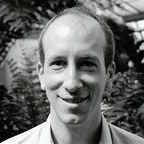Prof Shaun Killen
Professor of Ecophysiology, University of Glasgow
Who leads and who follows? The interplay between metabolic phenotype and social behaviour in fish
Social behaviours come with a variety of costs and benefits for individual animals. For this reason, individuals tend to vary in their degree of sociability. Recent evidence suggests that this behavioural variation is linked to various traits associated with bioenergetics, including metabolic rates and locomotor ability. On the one hand, underlying variation in metabolic traits (e.g. maintenance metabolism, maximum metabolism) seems to affect sociability by affecting predator avoidance, foraging needs, and competitive ability.
Specifically, an animal’s energetic status influences not only whether an individual will join a group of conspecifics, but also the behaviour of individuals that have already joined groups. Conversely, an animal’s social environment can feedback to affect its physiological traits and performance. This can occur via the effects of aggression and competition but also through stress reduction and the energy-saving benefits of moving in groups. Here I review this interplay between social behaviour and individual physiology, including the modulating role of additional factors such as temperature and oxygen availability. I also discuss ways in which these links may be relevant in the context of human predation on fish populations and fisheries-induced evolution.
:
http://www.shaunkillen.com








